– Luke Zahm: This week on Wisconsin Foodie: Marcus, where are we right now?
– Marcus Landry: So we’re at the Beulah Family Homestead.
– Luke: Come here.
[goats bleating] Naaah!
[goose honking] Is that a donkey or a goose?
– Marcus: A goose.
– Luke: Sounds like a donkey.
– Yeah, he does.
Well, my first stop was the New York Knicks, so I played in the NBA for 3 years.
Moved around the NBA quite a bit after that.
That adrenaline rush that I used to get with basketball turned into an adrenaline rush, like, with these animals and growing vegetables and all that stuff, so I still get my fix.
We’re taking a different approach to farming to try to change as many lives as we can.
– Luke: I love this particular farm.
It’s removing barriers.
[groovy music] Wisconsin Foodie would like to thank the following underwriters.
[gentle music] – Did you know Organic Valley protects over 400,000 acres of organic farmland?
So are we an organic food cooperative that protects land, or land conservationists who make delicious food?
Yes; yes, we are.
Organic Valley.
– Twenty-minute commutes.
Weekends on the lake.
Warm welcomes and exciting career opportunities.
Not to mention all the great food!
There’s a lot to look forward to in Wisconsin.
Learn more at InWisconsin.com.
– Employee-owned New Glarus Brewing Company has been brewing and bottling beer for their friends, only in Wisconsin, since 1993.
Just a short drive from Madison, come visit Swissconsin and see where your beer’s made.
[sizzling] – For generations, our bacon recipe has remained the same.
You can see it on our labels, smell it as you cook it, and taste it in every bite.
Breakfast better with Jones.
– The Wisconsin Potato and Vegetable Growers are proud underwriters of Wisconsin Foodie.
It takes love of the land and generations of farming know-how to nurture a quality potato crop.
Ask any potato farmer and they’ll tell you, there’s a lot of satisfaction in healthy-grown crops.
– With additional support coming from The Conscious Carnivore.
From local animal sourcing to on-site, high-quality butchering and packaging, The Conscious Carnivore can ensure organically raised, grass-fed, and healthy meats through its small group of local farmers.
The Conscious Carnivore: Know your farmer, love your butcher.
– Also with the support of the Friends of PBS Wisconsin.
[bright, driven folk pop music] – Luke: We are a collection of the finest farmers, food producers, and chefs on the planet.
We are a merging of cultures and ideas, shaped by this land.
[sizzling] We are a gathering of the waters, and together, we shape a new identity to carry us into the future.
[glasses clinking] We are storytellers.
We are Wisconsin Foodie.
[relaxing music] – Marcus: Marcus Landry.
We’re at the Beulah Family Homestead.
Well, I retired in 2021, and that’s how I got started.
I always told God if He wanted me to stop playing pro basketball, He’s gonna have to take me out completely.
Well, I tore my Achilles three months before COVID.
The world was chaotic, things were crazy, and that’s what took me out, and I knew– I’d been studying farming and studying sustainability, and I always wanted Clydesdales and a lot of land, so… And that’s kind of how things got started, and I knew I was at a point in my life where I needed to give back and wanted to give back.
I’ve been blessed through basketball and many other things, so this is my way of giving back and sharing what I’ve been blessed with.
Never had any farming background at all, but I knew I wanted land, and I knew I wanted horses, Clydesdales to be specific, so I was able to make that happen.
My daughter and I share a special bond around the horses and stuff, and it’s just been awesome.
So no background.
Everything I’ve learned was kind of just taught to me, and I got a few mentors and stuff like that, so… That adrenaline rush that I used to get with basketball turned into an adrenaline rush, like, with these animals and growing vegetables and all that stuff, so I still get my fix.
Like, it just looks different, so… [laughing] So these are kids from a school in the city called VCA.
We partnered together, and we try to share this experience with as many of those kids as possible.
So we do a lot with other schools as well, but this is one of the schools that we’ve been doing a lot with for the last few years, so as it relates to the farm at least.
Well, these kids, they’ve been coming here for a couple years, this group of kids, so they’re just always ready and eager to get, you know, things going.
One of the things they do is they set and prepare a table, so it looks like they’re doing that early today.
They prepare their table.
They set their table kind of like for lunch and their workspace, so you’ll catch them all, like, putting decorations on the table and setting the table, which is pretty cool.
– What’s up, dude?
– What’s up, dude?
[snapping fingers] – Marcus: So we’re just teaching ’em how to care for a life, which is the main thing, man.
We got so many crazy things going on in the world, and we have some kids who are out here on the weekends just ’cause they love it so much.
It just makes all the difference.
Some of the kids have already picked things up and they’re driving tractors and doing all that fun stuff, so their reaction is great.
They love it, so it’s a farm-to-table event every single time they come out here, so it’s pretty, pretty exciting.
Today, we’re moving horses to the back pasture, but we gotta redo the pasture just so y’all know.
Now we gotta move the fence and give ’em new grass.
– Boy: It’s only gonna be us?
– No, it’ll be everybody, but you guys are the leaders, so I’m just telling you now.
I think one of the biggest things for me is seeing some of the toughest kids from the toughest places come out into this environment and get to be their age.
They get to be kids, right?
Some of ’em come from places where they gotta be tough, they gotta be an adult, but when they come here, they can just be kids.
They can run around, they can play, they can jump, they can scream, they can shout, and that’s one of the biggest takeaways.
I didn’t get to have anything like that growing up, but I was fortunate enough to have, you know, good parents, but these kids, they get to experience this on a day-to-day basis when they come here, and they get to be kids.
They get to unwind, and they get to see something different.
It definitely is humbling.
Yeah, every part of it, so it’s awesome.
[groovy music] – Luke: Marcus, where are we right now?
– So we’re at the Beulah Family Homestead.
– It seems like there’s a couple different aspects of what Beulah does in its mission.
– Marcus: Of course.
– Right?
You’re raising food.
You have children joining you here from schools and, like, getting to learn about where their food comes from.
– Yeah.
– But then there’s also, like, all the multifaceted farming that happens here.
What are some of the things that we’re gonna walk through and see today?
– Marcus: So you’re gonna see a lot today.
You’re gonna see the kids, like you said, interacting with the animals.
We got the horses.
They’ll interact with the horses.
They’ll interact with the goats, the sheep, the chickens, the ducks, you name it.
We’re gonna get everything today, which is huge and awesome, and you’ll be able to see how the kids interact with that, especially dealing with these goats and stuff over here.
– I love the goats.
[laughing] – They’re a little brutal over here, so those are my GOATs, the greatest of all time over there.
– Luke: Yeah!
[goat bleating] – Marcus: You boys ready for chores?
– Luke: How are you guys doing?
– Good, how are you?
– Good, my name’s Luke.
– Hi Luke, nice to meet you.
– Is it all right if I tag along with you today while you do your chores?
– Yeah.
– Yeah, we can use some more muscle, right, or do we got enough?
– We can use some more.
– You can use some more?
All right, let’s get those hoods off.
So the main thing is they’ll give animals what they need, and then we’ll do, like, they’ll basically go through the fundamentals.
– Luke: Sure.
– Marcus: I love basketball.
I relate everything– the fundamentals of everything.
What did you observe?
What did you see?
Did you give water?
Did you give hay?
What do I need to know?
And then not only that, I think the biggest thing for kids when they’re doing something labor-intensive is if they don’t feel like they own it or they have some type of ownership in it, they don’t care, you know?
Unless they can relate to it.
So one of the things I always do at the end of everything is “How can I get better as a farmer?
“Have you seen something that I can change that might be beneficial for the animals or whatnot?”
– Luke: Yeah.
– Marcus: So it’s always huge.
– Luke: This has gotta be so rewarding.
I mean, like, was there ever a point, you know, you’re a professional athlete, that you thought you would come to this?
– Marcus: No, not at all, not at all.
It kind of all came about with the buying of the land and some of the things I started doing once I transitioned and tore my Achilles.
It all kind of transitioned, so it worked out.
– Luke: Yeah, you seem very rooted in it.
This is a very natural progression for you.
– Marcus: But it’s one of my tendencies that if I do something, there’s no halfway in, halfway out.
– Luke: Sure, sure.
– Marcus: I’m jumping all the way in.
– Luke: Yeah.
– Marcus: And that’s what I did here, and I put it all on the line.
– Luke: Yeah.
– Marcus: The Doberman goats are really, really wild right now.
They need to come out, and they need to be placed in the stall.
– Boy: Do we just usually with the horns or a leash?
– Marcus: Yeah, yeah, no, we’ll grab them by the horns.
– Luke: All right, here we go.
– Marcus: They’re a little aggressive today.
– Luke: Have you done this before?
– Boy: Yeah.
– Luke: Yeah?
Come here.
[goats bleating] Naaah!
Okay, oh, come here, here we go.
[goats bleating] – Marcus: There you go, get ’em!
– Luke: Yeah!
– Marcus: There you go.
– Luke: One, got it.
– Boy: You got this?
– Sure, I can take this one.
Come on, buddy.
Come on, oh, you’re stubborn.
– Marcus: Oh, yeah, he is.
You got him, Issac?
– Luke: Yeah!
[laughing] – Marcus: There you go, all right, to the stall.
– Luke: All right, I’m following you.
– Marcus: I’m going there with you.
– Luke: Man, for being a little guy, you sure are strong.
[Marcus laughing] – Marcus: All right, now they can cool off in here because… – Luke: Yeah, take it easy.
– Marcus: You guys are… – Goat wrangling!
– There you go, at its finest.
– My man!
– Let’s go get some hay.
– Let’s do it, here we go.
– Let’s grab a couple bales.
– Teamwork makes the dream work.
– Marcus: So we get football guys out here to do hay.
[Luke laughing] You know, a couple thousand bales of hay.
So this is my right-hand man.
– Luke: Seriously?
– Marcus: He’s here all the time.
Like, he’s here, he drives the tractors.
He drives the machinery.
You hear Big Red out there?
Let’s go take a look and see what he needs.
– Luke: There’s so much identity in Wisconsin involved with farming.
– Marcus: Yeah.
– What is it, what identity are you hoping to impress on little ones like this dude here by giving them this access to connecting with the food, connecting with the animals, being out here, doing the actual work?
– Marcus: Well, number one is a life-changing experience, right?
To whatever they learn here, they can take it with them wherever they go.
Everything in the world is connected to farming.
It’s the first occupation ever given to man, and it ain’t never going anywhere.
– Luke: Right.
– Marcus: So with that being said, me understanding that the retirement rate of farming is 60, 61.
– Luke: Mm-hmm.
– Marcus: The buy-in rate for starting the farming is 60, 61.
– Luke: Sure, yeah.
– How does that even work, you know?
So getting kids like Issac here involved in farming at a very young age, [chuckling] at a very young age to learn farming that one day he might become the next generation of farmer that is of a younger age, I would say.
– Luke: Yeah.
– Marcus: And then taking everything he learned, the life skills, the problem-solving and being able to implement that into the real world or when he goes back to the city is huge, so we are farming, but we’re taking a different approach to farming to try to change as many lives as we can.
Here she come, Issac, here she come, Issac!
Get her, Issac!
Oh, don’t go through the fence.
Please don’t go through the fence.
Please don’t go through the fence.
– Luke: There aren’t a lot of African American farmers in Wisconsin.
How important is it for you to be doing this and, like, to have kids like Issac here see you, you know, maybe not fitting the traditional bill of what people think a farmer looks like, but still doing the work?
– Marcus: Yeah, it’s important, right?
It’s not something that you see a lot of African Americans doing, and I think that’s what makes it unique, right?
Showing kids like Issac, whether he’s white, Hispanic, Black, I don’t care, red, blue, purple… – Luke: Yeah.
– Marcus: That you can do anything.
– Luke: Yeah.
– Marcus: If that’s what you wanna do, it’s great.
A lot of times in the city or wherever we’re from, we try to hold a certain standard of what’s cool, so everybody wants to be basketball players, everybody wants to be, you know, this, this and that, but I find it amazing.
So you can ask Issac.
We drive around and we look at other farms, and I’m like, “Man, look at that Lamborghini right there.”
He’s like, “Where?”
And I’m like, “You see that big tractor right there?
That cost, if not more, than the Lamborghini.”
There’s six of ’em sitting outside.
– Issac, do you want a Lamborghini someday?
No?
You want a big tractor?
[cow mooing] [all laughing] – Marcus: Relating and bridging the gap from what kids know from the city to farming, with that machinery, you can feed millions of people.
Well, with that Lamborghini, only millions of people can look.
– Luke: Yeah.
[laughing] – Marcus: See, you know?
And just giving ’em different perspective and being able to relate it, bridge that gap, I should say.
[tractor roaring] All right, here we go.
– All right, so we’re going out to pasture.
– Marcus: Yes, sir.
We’re about to go out to pasture.
They’re in the shade right now.
We’re gonna see if we can call ’em all the way over across the field.
– Luke: Nice.
– Marcus: And then go from there.
[whistling] Come on, Red!
[whistling] [cow mooing] [Luke laughing] These Highlands actually come from a friend of mine who I played basketball with, Mike Wilkinson, who does beef production with Highland.
– Oh, yeah.
– Yeah, the dude’s just phenomenal.
– Yeah, he is a great farmer.
He always was, like, Wisconsin Heights kid.
– Marcus: Yep.
– Luke: Yep.
– Marcus: You scared to get up close?
– Luke: No.
– Marcus: We can get up close.
– Luke: We can get up close.
– Marcus: And walk back.
If her baby comes over here, then we– Can you run?
– I can run.
– All right.
– Can you run, Achilles?
– Hey, I can run, hey.
When she came after me and I jumped that fence, I said, “Oh, I still got it.”
[Luke laughing] – Luke: “I still got it.”
– Marcus: Come on, Red.
It’s pretty cool.
Sometimes, I walk out here and just walk them all the way back to the barn.
I don’t know.
This is relaxing for me.
– Luke: Yeah.
Did you have any family that were farmers?
– Marcus: Well, it was weird.
So when I was doing this whole thing, going back and forth with the guy who owned the property before me, offer, offer, I had this moment ’cause he wouldn’t budge, and I had this moment, and I’m like, “Why am I doing this?”
You know, first of all, I’m a Black guy.
Ain’t too many of us farming, at least not up here, you know?
So I had a breakfast one day with my cousin, older cousin of mine, and he began to tell me about my great-grandmother, who I found out that day that she was a farmer.
She had a farm, and she had pigs and chickens, so I called my grandma, and I’m like, “Grandma, I gotta know some things.”
And she’s like, “Come on,” so I went over there.
I was over there probably, like, six hours, and she just told me everything.
– Luke: That’s amazing.
– I was in tears.
– Luke: Yeah.
– She told me to do it.
I left her house and got in my car.
Right outside her door, right outside her house, I called my realtor and said, “Offer him.
Give him whatever he wants,” and that was it.
– Luke: Done.
– Marcus: And that was kind of my– That was my deciding factor right there.
– Yeah.
– Skipped a few generations, but here it is.
– Luke: Here it is.
– Yeah.
– And it’s in you.
– I thought I was crazy, so that helped me.
After that day, I knew I wasn’t crazy anymore.
I’m like, “It’s perfect,” yeah.
– Luke: And now you’re bringing, you know, your mom and all the kids into it.
– Marcus: Yeah.
– Luke: You know, it’s a very affirming thing.
– Marcus: Yeah, I come out here.
I’ll put a chair out here and sit and just look.
I mean, this is it.
I’m not selfish.
I get to share it with everybody, so, yeah.
– Luke: Yeah, you’re a good man.
– Yeah, man, I’m trying to be.
– You are.
– Thank you, thank you.
– Luke: Of course, thank you.
[groovy music] – Have we done chickens in the mobile coop?
– Boy: Yes, yes.
– Have we done chickens out there?
– Girl: Yes.
– Marcus: The big chickens in the little– all the mud right there?
– We did that already?
– Yeah.
– Water, food?
– Girl 2: We didn’t do that.
– Girl: Pumpkins.
– What we’re gonna do is we’re gonna take everything out, take their water out, their pool out, their feed bin.
All of that needs to come out, all right?
So let’s do that.
Once that comes out, we’re all gonna collectively go in there and give them new bedding.
All right, we got it?
Perfect, let me know when that’s done.
– Luke: This is truly incredible.
I’ve been around farms my entire life, but I don’t think I’ve ever had such a hands-on opportunity to get to know the animals, to touch the animals, to assist in the care for the animals, hauling the hay, hauling the water.
It truly is planting the seeds of a future for these kids that are most likely very, very different than they may ever see anywhere else.
I love this particular farm because what it’s doing is it’s removing barriers.
It’s allowing each one of these kids to feel like they’re invested in the operation that Marcus and his family offer up.
Yeah, there’s a lot of healing going on out here, and that healing is the future of us.
– Marcus: All right, it’s 11 o’clock.
I just said it was 11 o’clock.
Ayrton’s, “Lunchtime, let’s go!”
[laughter] Come on, Ayrton.
– Cowboy style, here we go.
So we do sticks down, charcoal?
– Marcus: However you know how to start it.
– All right, great.
– You’re in charge, you’re in charge.
– I’m gonna take ownership of this one.
– Perfect, you’re in charge.
– Here we go.
– Marcus: It’s wet down there, so… – Luke: Yep, get it up a little bit.
I think what you’re doing out here, Marcus, is absolutely beautiful.
– Marcus: Oh, thank you.
– I mean it, like, seeing these kids come in and, you know, being able to, like, fully engage themselves in the work, and it’s good work, it’s meaningful work, and allowing them to learn by their own experience, I think that that is amazing.
The world definitely, definitely needs more of that.
– Marcus: Appreciate that.
– Luke: But I love also the fact that we’re gonna take it back into the food, that sense of connection, right?
Full circle.
– Oh, yeah.
– So tell us, as I try and light this up, what’s on the menu for today?
– Marcus: All right, so last year we raised some pigs, right?
Today, we’re having brats.
We have some Italian brats, and then we have some regular brats.
So, yeah, this is one of my favorite things, like, to be able to have something that you raised and then you get to partake in, especially over an open fire like this, man.
It’s so exciting.
– Yeah.
It just, it does something.
It’s different, man.
It’s not the same, so… – I think food is an amazing connector.
You know, get different viewpoints around the table, but like out here, this is the dream.
– Marcus: Kids get to, they get to raise something, partake in raising it, and then see it put in front of them, and then not only see it put in front of them, but like it.
– Luke: Yeah, right?
– Giving the kids ownership to take the farm and create something, it’s just, like, my dream.
Food really brings people together like no other.
– Luke: So after you left the University of Wisconsin, what was your first stop in the journey?
– Well, my first stop was the New York Knicks.
So I played in the NBA for three years with the Knicks, was traded to Boston, moved around the NBA quite a bit after that, but I came to a point in my career where I knew it was time to, you know, find something more stable, and overseas is what did it for me.
– So, overseas, playing overseas is more stable than– – Well, for me, you know, and the caliber of player I was.
The NBA is such a hard place to stick, you know, and I ended up having a really good career over there.
– Where did you go?
– I played in– you ready for this?
– Luke: Yeah.
– Marcus: Venezuela, Puerto Rico, Hong Kong, China, Italy, Spain, and Korea.
– Wow!
– Yeah.
It was the best decision I ever made.
I started my family really young, so being able to have my kids be overseas, learn a couple of different languages, it was huge.
– And so, like, that, was that, like, a eye-opening experience for you from a food perspective, like– – Marcus: Every country has their niche, man, and until you had it, you had it, and being overseas, places like Italy and China and Korea, man, so eye-opening.
I still can’t really enjoy pizza to this day here in America.
– Luke: I’m sure.
So I see a couple different types of brats here.
– Marcus: Yeah.
– Luke: What are we looking at?
– All right, so we got some Italian brats in there.
– Okay.
– And then we have just some, your regular, normal brats, and these brats were pretty cool.
We sent these in to be further processed into sausage and stuff, and he said these were the best pigs he’s ever seen in a long time.
– Sweet.
– He’s like, “Whatever you were giving these pigs, whatever you were doing, keep doing it.”
And that just made me feel good as a beginning farmer to be able to produce a product that was really good.
Not only that, that the kids like, right?
– Luke: Yeah.
– Marcus: They come from right here on the farm.
Everything you’re looking at here, and they’re pretty good, so… – Issac: Are they spicy?
– Marcus: No, they’re not spicy.
Y’all picked these today, right?
– Girl: Yeah.
– Marcus: Perfect.
We’ve lost the sense of way when it comes to food and how we cook, and I get to impact, along with my wife and others, a generation to be able to bring some of those things back.
You know, they might never eat it now, but they’ll remember the day that I put a poblano on the grill, and they’re gonna try it one day, so… [relaxing music] [cowbell ringing] – Woman: Children, lunch is ready!
[ringing continues] – Marcus: Yes, there’s a regular.
I think this is a regular right here.
That’s all yours right there, got your name on it.
– Issac: You sure?
– Luke: It does, actually.
I put your name on it.
– Marcus: Yeah.
Got some brats here, some poblanos on them.
Just find whatever you can find in the garden, right?
– I love it.
– There you go.
– Luke: Cheers.
I like the spice.
I mean, like, it’s got, like– you know, got classic brat flavor, but… – Yeah.
– Mmm.
– Yeah, my buddy down the street at Hometown Sausage.
They do a great job.
– Delicious, and I love the story.
It’s great to be able to sit here at Beulah and eat the brat that was produced right here, and I get to see all these beautiful people involved with making this happen and come together.
– Good?
– Mm-hmm.
– Luke: And get to meet the man, the maestro, who’s literally doing his second incarnation of a dream in one lifetime, which doesn’t even seem fair by most standards, but he’s knocking it out of the park.
This is a delicious brat.
This is a great day.
[goose honking] Even the donkeys agree.
Is that a donkey or a goose?
– Producer: Goose.
– A goose.
– Sounds like a donkey.
– Yeah, he does.
Oh, he’s vicious, too.
[Luke laughing] [goose honking] [chicken clucking] – Do you happen to know Michael Jordan, by the way?
– I don’t.
– Were you not playing at the same time?
– I’m not that old.
– Luke: Everything in my childhood wants me to try and clear that hay bale.
[laughing] – Producer: Jump over it?
– Well, you know, like, be able to do the… Huh, huh!
[laughing] – Producer: Marcus, push your hat up.
– Yeah, you want to see that beautiful face?
Ohh!
[cow mooing] [Marcus imitating cow] – There.
– Yeah.
– Felt like a… – Ow!
– Guys.
– Ooh, ooh, ooh!
– I told you.
– That feels weird!
Oh, heck, no, I’m never doing that again.
[gentle music] – Did you know Organic Valley protects over 400,000 acres of organic farmland?
So are we an organic food cooperative that protects land, or land conservationists who make delicious food?
Yes; yes, we are.
Organic Valley.
– Twenty-minute commutes.
Weekends on the lake.
Warm welcomes and exciting career opportunities.
Not to mention all the great food!
There’s a lot to look forward to in Wisconsin.
Learn more at InWisconsin.com.
– Employee-owned New Glarus Brewing Company has been brewing and bottling beer for their friends, only in Wisconsin, since 1993.
Just a short drive from Madison, come visit Swissconsin and see where your beer’s made.
[sizzling] – For generations, our bacon recipe has remained the same.
You can see it on our labels, smell it as you cook it, and taste it in every bite.
Breakfast better with Jones.
– The Wisconsin Potato and Vegetable Growers are proud underwriters of Wisconsin Foodie.
It takes love of the land and generations of farming know-how to nurture a quality potato crop.
Ask any potato farmer and they’ll tell you, there’s a lot of satisfaction in healthy-grown crops.
– With additional support coming from The Conscious Carnivore.
From local animal sourcing to on-site, high-quality butchering and packaging, The Conscious Carnivore can ensure organically raised, grass-fed, and healthy meats through its small group of local farmers.
The Conscious Carnivore: Know your farmer, love your butcher.
– Also with the support of the Friends of PBS Wisconsin.
Search Episodes
Related Stories from PBS Wisconsin's Blog

Donate to sign up. Activate and sign in to Passport. It's that easy to help PBS Wisconsin serve your community through media that educates, inspires, and entertains.
Make your membership gift today
Only for new users: Activate Passport using your code or email address
Already a member?
Look up my account
Need some help? Go to FAQ or visit PBS Passport Help
Need help accessing PBS Wisconsin anywhere?

Online Access | Platform & Device Access | Cable or Satellite Access | Over-The-Air Access
Visit Access Guide
Need help accessing PBS Wisconsin anywhere?

Visit Our
Live TV Access Guide
Online AccessPlatform & Device Access
Cable or Satellite Access
Over-The-Air Access
Visit Access Guide
 Passport
Passport






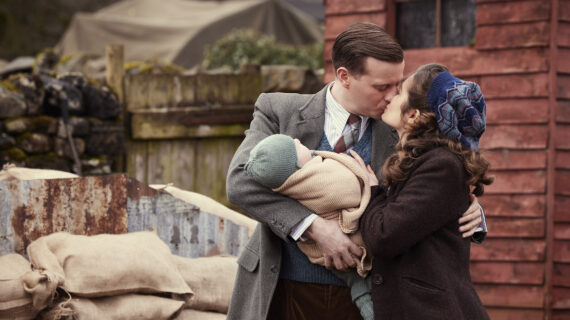

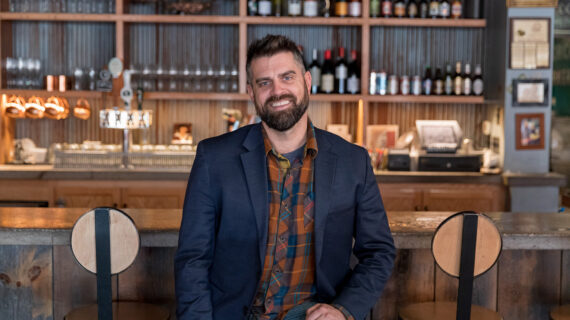
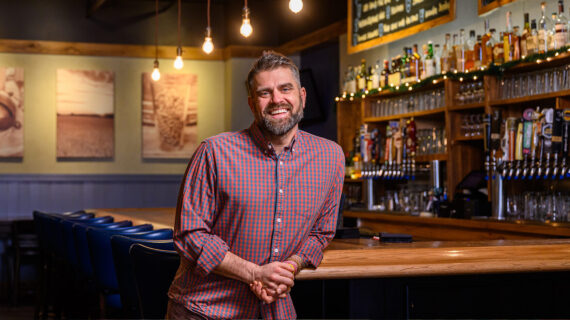
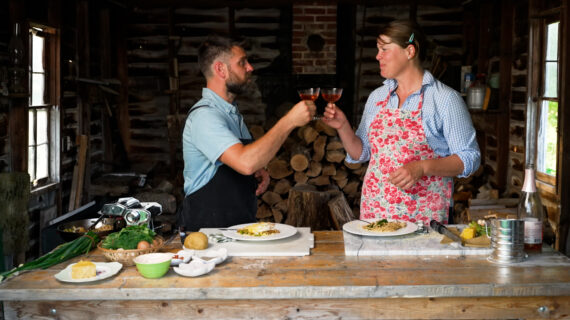
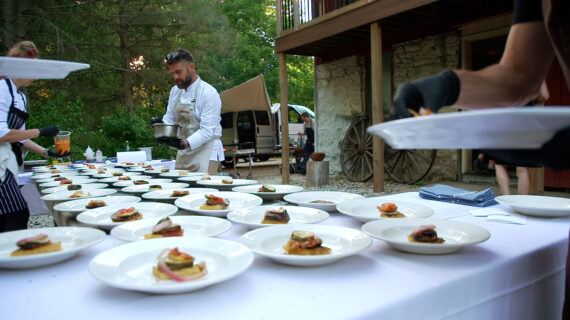
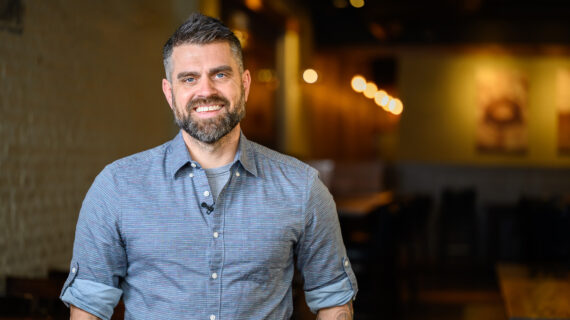
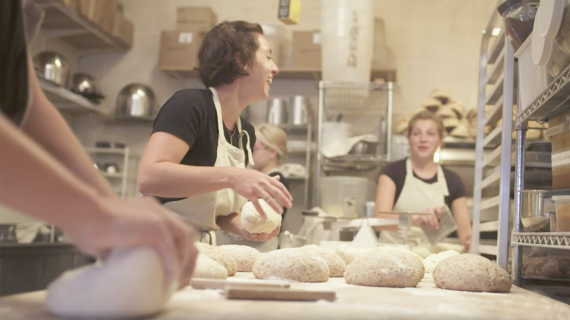
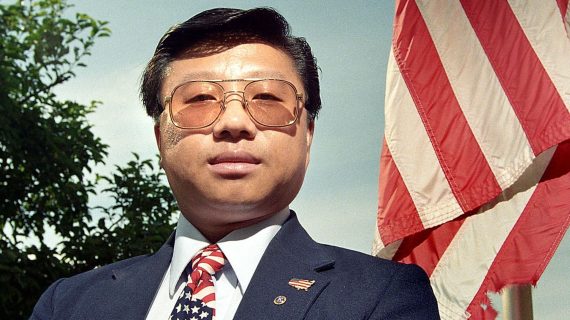

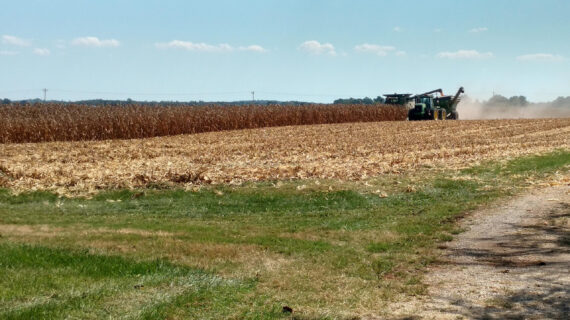

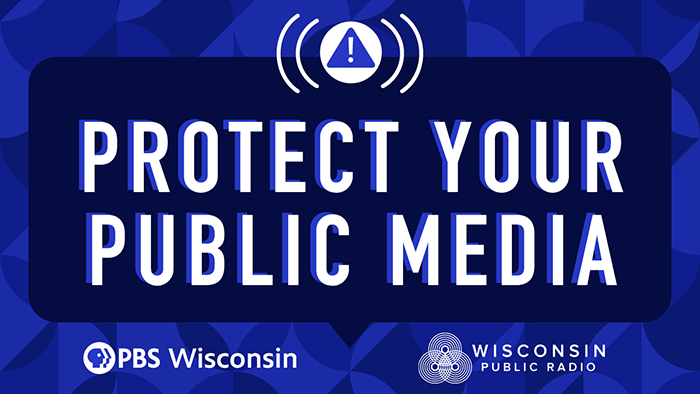
Follow Us